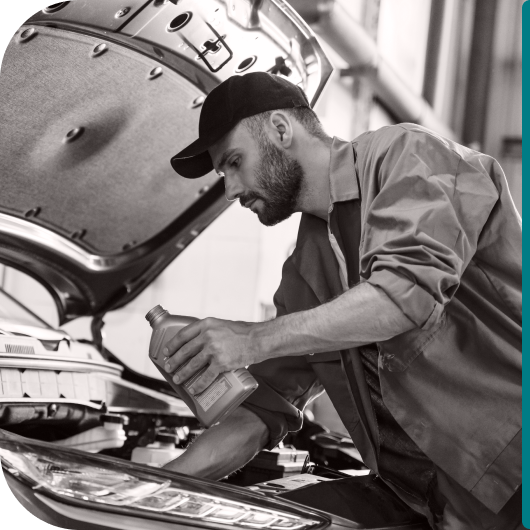Express Knowledge
Express Knowledge
At Lubers Express Oil Change, we believe that preventative maintenance is one of the smartest investments you can make in your vehicle.
Regular oil changes, filter replacements, and fluid top-ups are a low-cost way to keep your engine running smoothly, efficiently, and safely, while helping you avoid costly repairs down the road.
Our team stays up to date with the rapidly changing technology in the automotive industry, so you don’t have to. We ensure that your vehicle receives the right products and the right service every time.

Regular oil changes, filter replacements, and fluid top-ups are a low-cost way to keep your engine running smoothly, efficiently, and safely, while helping you avoid costly repairs down the road.
Our team stays up to date with the rapidly changing technology in the automotive industry, so you don’t have to. We ensure that your vehicle receives the right products and the right service every time.
Why Oil Changes Matter
Oil is the lifeblood of your engine. It lubricates moving parts, reduces friction, and helps protect against heat and corrosion. Over time, oil breaks down, becomes contaminated, and loses effectiveness. Without proper lubrication, metal components rub against each other, resulting in internal wear and potential engine damage.
Routine oil changes help:
- Prevent varnish and carbon buildup in your engine
- Protect against corrosion with fresh additives
- Draw heat away from the combustion chamber
- Extend the overall life and performance of your vehicle
How Often Should You Change Your Oil?
Service intervals depend on your oil type, driving conditions, and manufacturer recommendations. As a general guideline:
Driving habits, idle time, climate, and vehicle type can all affect these intervals. We always recommend checking your owner’s manual or vehicle service indicator if applicable.
